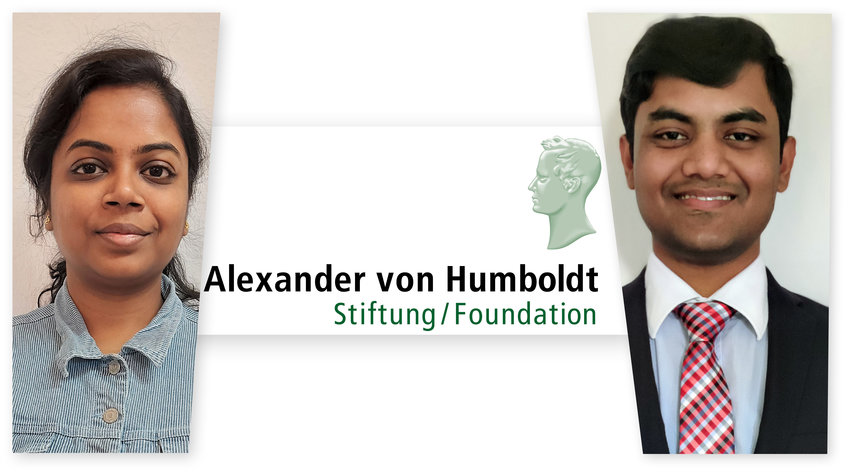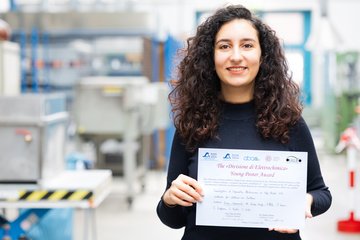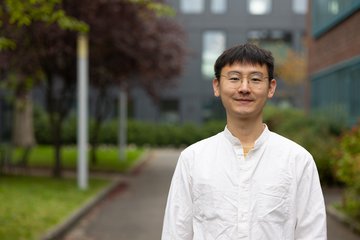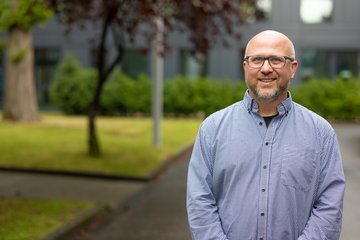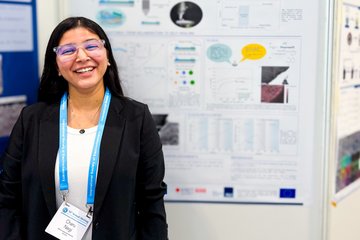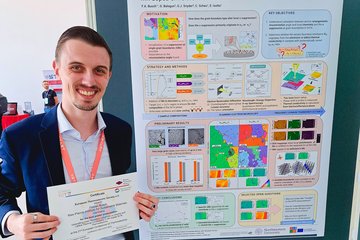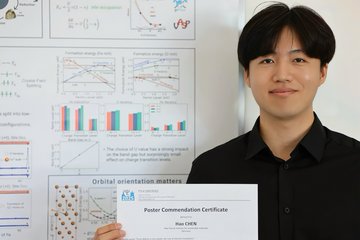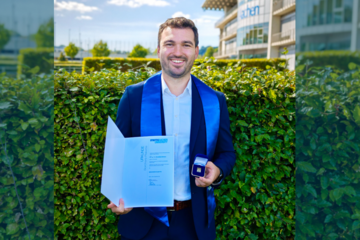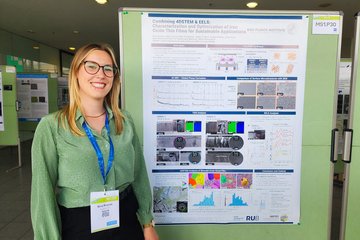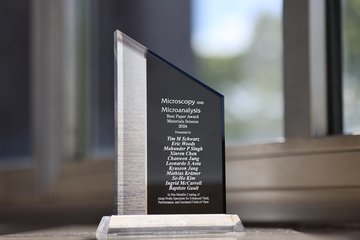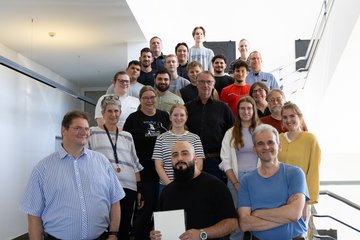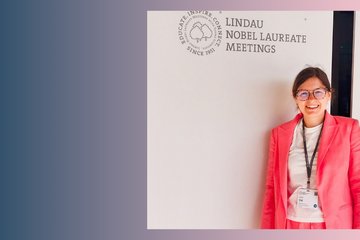Humboldt Foundation awards Ankita Mahajan and Sravan Kumar
Awarded postdocs join the Max-Planck-Institut für Eisenforschung to continue their work on CO2 reduction and lightweight design
The Alexander von Humboldt Foundation awarded Dr. Ankita Mahajan and Dr. Sravan Kumar Kanchari Bavajigari with a Humboldt Research Scholarship for postdocs. The scholarships support a stay at any research institute in Germany. Both researchers chose the Max-Planck-Institut für Eisenforschung (MPIE) to be their host for the next two years and will enrich the MPIE with their research projects, which aim at lowering CO2 emissions during the reduction of iron ores and at developing anti-corrosion strategies for magnesium alloys.
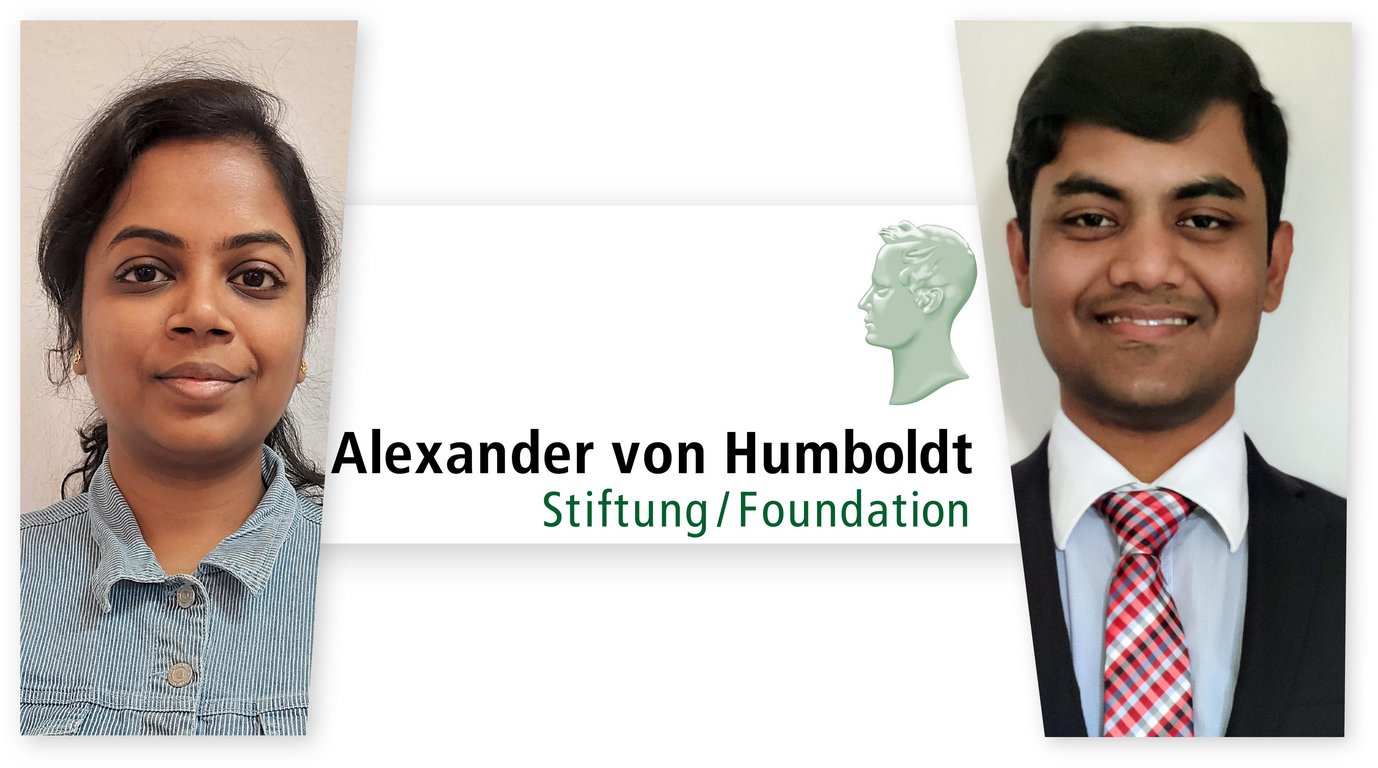
Green metallurgy: Gaining crude iron through electrolysis
Mahajan is a bona fide researcher from the Department of Chemistry at the Jadavpur University (India), co-authoring ten publications in excellent journals. In her research project at the MPIE-department of “Microstructure Physics and Alloy Design”, Mahajan deals with the problem that the extraction and production of most metallic materials need a lot of energy and emit large amounts of greenhouse gases. Her research goal is to find ways reducing these emissions using electrolysis.
Electrolysis is used to separate the elements from naturally occurring sources. However, the electrolysis of iron ore takes huge amounts of energy and lacks proper cathode and anode materials, which are capable of overcoming temperatures up to 1500°C in a blast furnace. Mahajans research aims on the usage of various low-temperature ionic liquids as electrolytes instead of conventional aqueous or organic electrolytes for the electrolysis of iron ores. This would be both, environment-friendly on the one hand, and could also reduce the corrosion of iron during the extraction of crude iron from ores. A research project fitting to the MPIE, as Mahajan explains: “The institute's world-class infrastructure, nurtures the research scholar to develop new tools and enhances the research interest. This encourages me to collaborate with my new colleagues here.”
Tackling magnesium corrosion for future lightweight design
Sravan Kumar has a catalysis background with a PhD from the University of Houston (USA). He strongly believes that disseminating knowledge is key in achieving scientific progress. A belief put in practice through his publications in renowned journals. Kumar’s research goal, while staying at the MPIE department “Computational Materials Design”, is to develop a computational framework to understand the role of iron impurities in magnesium corrosion. Lightweight materials such as magnesium are urgently needed in the automotive and aerospace industry to reduce vehicle weight, thereby not only reducing fuel costs, but more importantly reducing fuel emissions and consequently curb global warming. However, a severe technological challenge in using magnesium alloys on a large scale is their high propensity towards corrosion.
To develop knowledge-based anti-corrosion strategies, it is crucial to understand the atomistic and electron transport mechanisms of corrosion. “I am honored to receive this award and looking forward to the work at the MPIE. I can learn novel techniques by getting in touch with leading scientists in this field. Furthermore, I can raise awareness for facilitating magnesium as a structural material through the attendance of conferences and scientific outreach activities. Consequently, the stay at the MPIE will tremendously help my career development as a researcher.”, Kumar explains.
The Humboldt Foundation supports academic cooperation between excellent scientists from abroad and in Germany. It grants these research fellowships for experienced researchers who have excellent qualifications and their own research profile. As the awardee is free to choose any host institution in Germany, the prize counts as a great honor for both, the awardee and the host institution.
